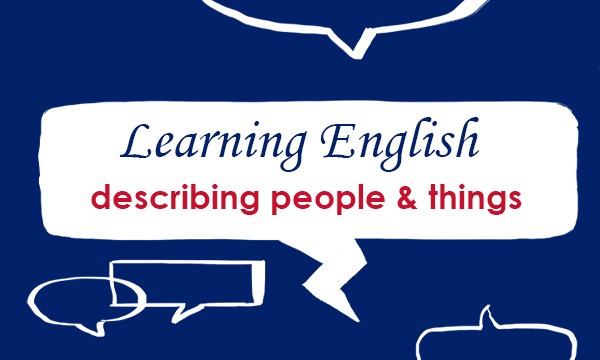
To give a general descriptions of something, use It’s …
It’s gold with three diamonds.
It’s a ladies’ watch.
It’s a green suitcase with wheels.
Use It’s made of … to say what material or substance something is.
It’s made of leather.
It’s quite a small bag, and it’s made of velvet.
The beads are bright blue and they’re made of glass.
Start general descriptions of people with He’s/She’s …
He’s five years old.
She’s Spanish.
He was very tall.
Use He’s/She’s got … to talk about what someone looks like.
She’s got short brown hair.
He’s got a beard.
She’s got brown eyes.
To talk about someone’s clothes, use He’s/She’s wearing … or He’s/She’s got … on.
She’s wearing jeans and a green T-shirt.
She’s wearing an orange blouse.
He’s got a black jacket on.
To describe the impression that someone gives, use He/She looks …
Sheila was looking miserable.
She looks around 15 years old.
Come back for more blogs on using English in everyday situations: https://blog.collinsdictionary.com/language-learners/learning-english/
All opinions expressed on this blog are those of the individual writers, and do not necessarily reflect the opinions or policies of Collins, or its parent company, HarperCollins.




collins_dictionary_official
The home of living language. #wotd #wordlovers #collinsdictionary
Read our word of the week definitions and blog posts: